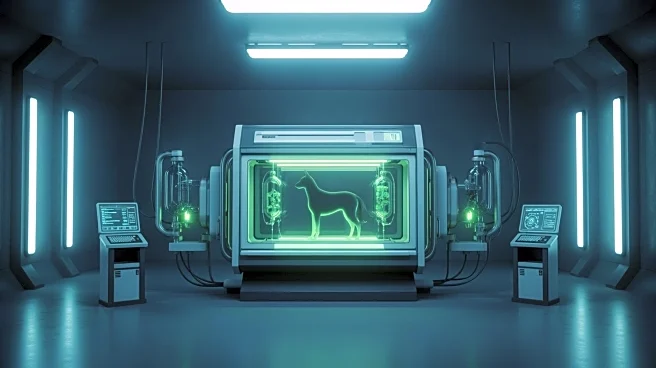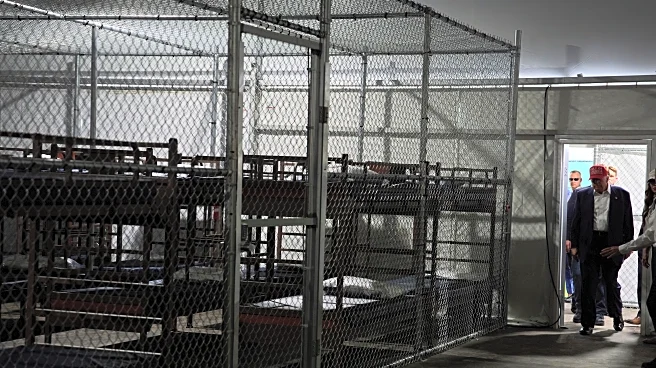What's Happening?
Tom Brady has announced the cloning of his deceased dog, Lua, through a partnership with Colossal Biosciences. Lua, a pit bull mix, passed away in 2023, and Brady's new dog, Junie, is a genetic clone of Lua.
Brady utilized Colossal's non-invasive cloning technology, which involves a simple blood draw, to preserve Lua's DNA before her death. The cloning process, which can cost up to $50,000 for dogs, is part of Brady's investment in Colossal Biosciences, a company known for its ambitious biotech ventures, including the cloning of pets for celebrities like Barbra Streisand and Paris Hilton.
Why It's Important?
The cloning of pets, while scientifically advanced, raises ethical concerns about the nature of cloning and the implications for animal welfare. The process has a low success rate, with only about 20% of attempts resulting in viable clones. This development highlights the intersection of biotechnology and celebrity influence, as Brady's involvement with Colossal Biosciences brings attention to the commercial viability and ethical considerations of pet cloning. The broader impact on the biotech industry includes potential shifts in public perception and regulatory scrutiny regarding genetic manipulation and cloning practices.
What's Next?
As Brady's investment in Colossal Biosciences continues, the company may face increased scrutiny over its cloning practices and ethical considerations. The biotech industry could see a rise in interest from other high-profile investors, potentially leading to more commercial ventures in pet cloning. Stakeholders, including animal rights groups and regulatory bodies, may push for clearer guidelines and ethical standards in cloning practices. The public's reaction to Brady's announcement could influence future developments in the biotech sector, particularly in the realm of genetic engineering and cloning.
Beyond the Headlines
The cloning of pets like Brady's dog Junie underscores deeper ethical questions about the nature of identity and the role of genetics versus environment in shaping personality. While cloning replicates genetic material, it does not recreate the original animal's experiences or personality traits, leading to philosophical debates about the essence of life and individuality. This development may prompt discussions on the limits of biotechnology and the moral responsibilities of those who engage in genetic manipulation.










